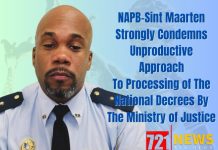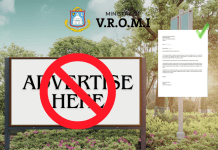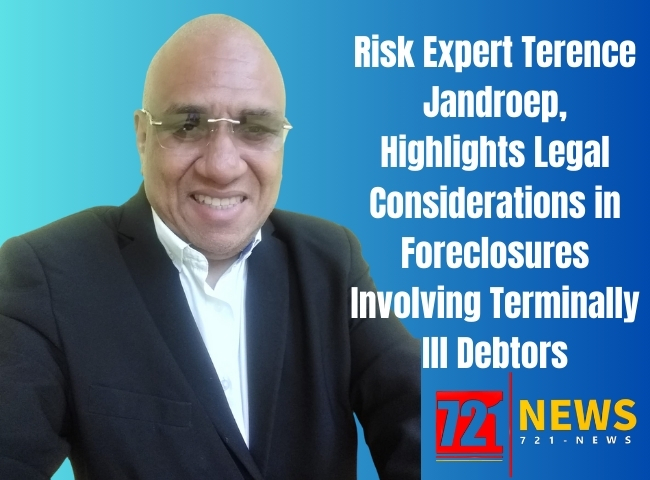Risk Expert Terence Jandroep, Highlights Legal Considerations in Foreclosures Involving Terminally Ill Debtors
Sint Maarten – Bank foreclosures on properties owned by terminally ill debtors raise significant legal and ethical concerns. In Sint Maarten, such situations fall under the purview of the Civil Code of Sint Maarten and the general banking conditions. While banks have the right to enforce their security interests, foreclosure on a terminally ill debtor raises questions about good faith, proportionality, and the possibility of alternative solutions.
Certified Risk Analyst Terence Jandroep provides expert insight into the Procedural framework governing bank foreclosures in such cases and outlines actionable steps that debtors can take to protect their rights.
Legal Framework
- Civil Code of Sint Maarten
The Civil Code of Sint Maarten includes provisions regarding contractual obligations, good faith, and the enforcement of security interests. The most relevant sections include:
- Book 6, Article 2: This provision mandates that parties must act in good faith and reasonably execute contractual obligations.
- Book 3, Article 13: Discusses abuse of rights, which could apply if a bank enforces foreclosure without considering the debtor’s medical condition.
- Book 6, Article 248: This article allows for a contractual agreement to be interpreted in a manner that aligns with principles of fairness and justice.
- Book 6, Article 258: Allows for modification of obligations due to unforeseen circumstances, which may be relevant if the debtor’s terminal illness was not foreseeable at the time of contracting.
- General Banking Conditions
Banks in Sint Maarten operate under standard General Banking Conditions, which typically include:
- Duty of Care: Banks must treat customers fairly and consider individual circumstances.
- Foreclosure Procedures: The bank is entitled to initiate foreclosure if a debtor defaults, but must follow a due process.
- Restructuring and Mitigation Options: In certain cases, banks may negotiate modified payment plans or accept alternative solutions before resorting to foreclosure.
Steps for Debtors Facing Foreclosure Due to Terminal Illness
Step 1: Immediate Notification to the Bank
- The debtor (or their legal representative) should inform the bank in writing of their medical condition and provide relevant medical documentation.
- Request a temporary suspension of foreclosure proceedings while alternative solutions are explored.
Step 2: Negotiation for Loan Restructuring
- The debtor can propose a payment moratorium based on their health condition.
- Request a modification of payment terms, such as lower monthly payments or interest-only payments.
- Propose a voluntary sale of the property to avoid forced foreclosure and minimize financial losses.
Step 3: Legal Protections and Defenses
- Invoke Good Faith (Civil Code, Book 6, Article 2): If the bank proceeds aggressively despite the debtor’s medical condition, a legal argument can be made that the bank is acting in bad faith.
- Appeal to the Principle of Abuse of Rights (Book 3, Article 13): If the foreclosure appears excessively harsh under the circumstances, a court may intervene.
- Request a Judicial Review Under Unforeseen Circumstances (Book 6, Article 258): If the illness was unforeseeable, the court may adjust obligations.
Step 4: Seek Mediation or Legal Assistance
- Many banks offer internal mediation services to resolve disputes before litigation.
- Consult a legal expert specializing in banking and contract law to explore potential defenses and legal remedies.
- If the bank refuses to negotiate, the debtor may file a petition in court to challenge the foreclosure process.
Expert Commentary
Jandroep, emphasizes the need for banks to approach foreclosures involving terminally ill debtors with good faith and proportionality. “It is essential that banks adhere to legal and ethical standards when handling such sensitive cases. Debtors should be aware of their rights and seek professional Risk support to ensure fair treatment.”
Conclusion
Foreclosure on a terminally ill debtor exists in a legal grey zone, balancing the bank’s right to recover its funds against the debtor’s vulnerability. The Civil Code of Sint Maarten provides legal arguments that may be used to delay or restructure obligations, while the general banking conditions offer potential solutions outside of litigation. Debtors should act proactively by notifying the bank, negotiating restructuring, and seeking legal assistance when necessary. In extreme cases, judicial intervention may be required to ensure a fair and just outcome.
For further information, please contact: Terence Jandroep, Certified Risk Analyst Email: [email protected]































